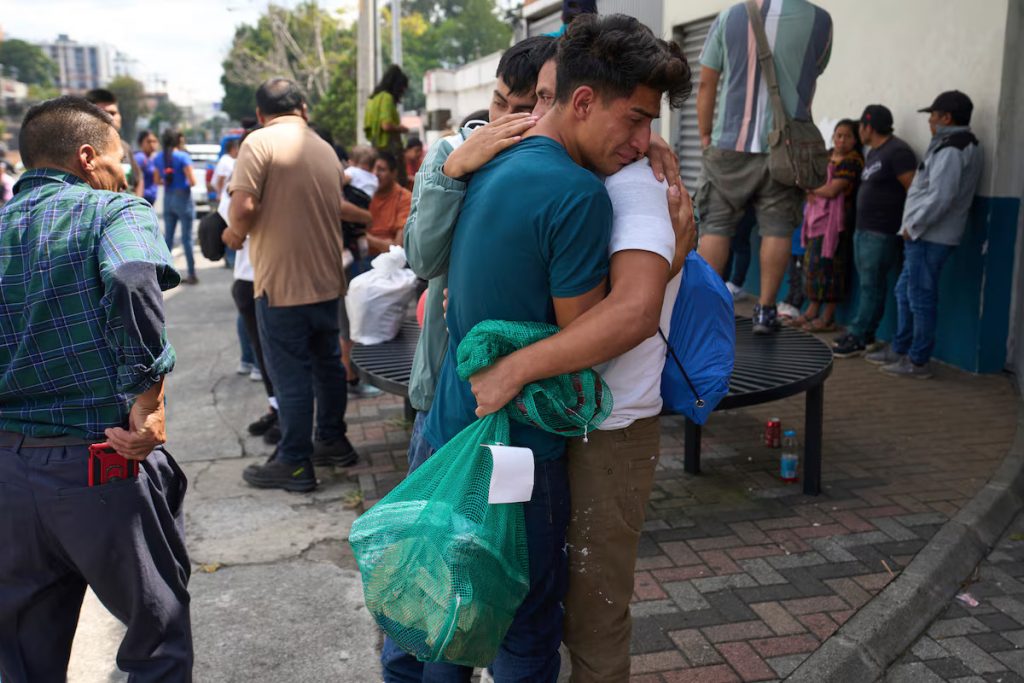A federal judge has stopped the Trump administration from deporting Guatemalan migrant children at the very last moment. Planes were already prepared to fly children out of Texas, but the order forced officials to stop the deportations. The case has drawn wide attention because it shows the legal battle over how the U.S. government treats unaccompanied minors.
Judge Sparkle Sooknanan gave the order on Sunday after lawyers rushed to court, warning that the government was moving quickly to send hundreds of children back to Guatemala. She first blocked the deportation of a small group of 10 children, aged 10 to 17. But later in the day, she expanded her order to cover all Guatemalan children who did not yet have a deportation order from an immigration judge. Her decision came after she learned that some children were already in the process of being deported.
During the emergency hearing, the Justice Department admitted that flights had been scheduled to carry the children to Guatemala. Officials said that although one plane may have briefly taken off, it was still on U.S. soil and all other flights had been stopped. The judge then instructed government lawyers to confirm that the children would be taken off the planes and placed back into the custody of the Department of Health and Human Services, the agency responsible for caring for migrant minors.
The Justice Department revealed that 76 children were scheduled for deportation that day. By Sunday evening, 16 of them had already been placed back in shelters under government care, and the rest were expected to follow by the end of the night. Under U.S. law, unaccompanied children are usually housed in shelters or foster care until they can reunite with family members or suitable sponsors inside the United States.
Lawyers for the children argued that the government’s attempt to deport them was unlawful. They said more than 600 minors were being targeted for removal without being given the chance to ask for humanitarian protection. According to U.S. law, children who arrive from countries other than Mexico must be allowed to appear before an immigration judge before any deportation. Many of these children have pending asylum applications or other cases, and returning them to Guatemala could expose them to danger, abuse, or persecution.
Government lawyers defended the plan by saying the children were not being formally deported but “repatriated” so they could reunite with relatives in Guatemala. They said this process was legal and requested by families. However, children’s advocates strongly disagreed, pointing to cases where parents had not asked for their children to be sent back. They argued that rushing children out of the country denied them the chance to present their legal claims for protection in the U.S.
Neha Desai, a lawyer with the National Center for Youth Law, described the government’s actions as “unlawful and profoundly inhumane.” She stressed that many of the children had already filed legal claims to remain in the United States because of abuse, neglect, or threats in their home country. Advocates believe the government was attempting to ignore those claims by moving the deportations forward during a holiday weekend.
The case is part of a larger struggle over immigration policy in the U.S. The Trump administration often tried to reduce protections for migrant minors, made it harder for families to sponsor children, and even encouraged some to return home voluntarily. At the same time, officials also carried out checks on children who had already been released to sponsors. Currently, about 2,000 migrant children remain under government care, waiting either to be reunited with sponsors or for their immigration cases to be heard.
This ruling shows how the courts play a key role in protecting vulnerable children. It also raises important questions. Should children be given enough time to apply for asylum and stay in safety, or should the government focus on sending them back quickly? For now, the judge’s order means that Guatemalan children will remain in the U.S. while their cases are reviewed, offering them a temporary chance at protection.

